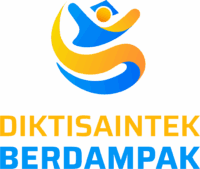A Group of IPB Researchers Analysed the Socio-Economic Dynamics of Banana Commodity of Small-Scale Farmers in West Java

A group of researchers of the Department of Communications Science and Community Development, of the Faculty of Human Ecology, of Bogor Agricultural University (FEMA-IPB), Fasih Vidiastuti Sholihah, Dr. Rilus A. Kinseng, and Dr. Satyawan Sunito undertook the research program on the dynamics of socio-economic of banana business of small-scale farmers in West Java.
Indonesia has abundant natural resources and a range of biodiversity including horticulture in which they must be maintained, utilized, and preserve sustainably. The biodiversity is shown in the form of fruit crops, vegetable crops, medicinal plants, ormanental plants, aquatic plants, etc. which have food and aesthetic value. Banana, one of the leading fruit in Indonesia that has been prioritized to be developed intensively. Cianjur regency is the main production center of banana in West Java which its development has been based on small-scale business. Increased consumption of bananas will increase its socio-economic performance that encourage bananas to be export commodity for economic improvement of rural communities.
Dr. Rilus said that the development of bananas is not only limited to increase production, but also must consider its sustainability. The policy so far has been limited to the increase in production, namely the provision of venture capital. This required a formula for the development of small-scale bananas industry.
This research was conducted in Talaga Village and Sarampad Village, Cugenang District, Bogor Regency, West Java. According to Dr. Rilus, from the beginning the community planted bananas as one of the food crops to meet the needs of household food. The communities of both villages grow bananas with knowledge of the way production is obtained for generations. They are an essential source of income and employment for hundreds of thousands of rural households.
Dr. Rilus said, the development of bananas occurs continuously since the implementation of Primatani program as a national horticulture development program. Indonesia is certainly blessed with a relative abundance of bananas; it is home to 200 different types of banana trees, 33 of which produce edible fruit. The implementation of banana development is the response and demand of people who want to develop bananas as local commercial crops.
Dr. Rilus also said, the realization of this program also has opened the market for direct contact with farmers. The commodity distribution process will be utilized seven types of value chains that connect farmers to end consumers. These types are a description of the social interaction process that occurs in one village as a whole.
"Institutional organization that exist in the banana farming system is the production, land tenure, farmer groups, employment relationships and distribution. This institutional organization was formed on the basis of cooperation and mutual benefit between actors. A policy that has been done is still limited to the increase in production is the provision of venture capital. So we need a formula for banana-scale development of the people. So it facilitates the work of the actors in every process on the banana farming system, "he said.
Next Dr. Rilus also added that banana commodities provide donations in the form of financial capital and social capital. These institutions are intended to facilitate the work of the actors in every process in the banana farming system. The institution of farmer groups is a formal institution. Banana commodities provide donations in the form of financial capital and social capital. Farmers make bananas as assets that can be guaranteed to get loan money to the middlemen. Social capital that formed to pave the way for the achievement of four other capital. The social capital contained in this research site is in the institutional form from the production process to the distribution. (Wied)



